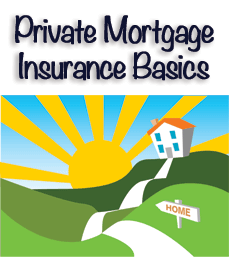 Private mortgage insurance (PMI) is a form of protection for mortgage lenders in the event of borrowers defaulting on their payments. If a borrow takes a mortgage that is more than 80% of the purchase price of their home, then they must also purchase mortgage insurance to protect the lender. In other words, you need PMI if your down payment is less than 20% of the selling price.
Private mortgage insurance (PMI) is a form of protection for mortgage lenders in the event of borrowers defaulting on their payments. If a borrow takes a mortgage that is more than 80% of the purchase price of their home, then they must also purchase mortgage insurance to protect the lender. In other words, you need PMI if your down payment is less than 20% of the selling price.
In some cases, the value of your home may be appraised if the lender feels that the price you paid is not representative of its true value. Because its purpose is to protect the lender, the insurance premium is based upon the amount borrowed, and generally set at 0.5% of the total mortgage loan for year one, and then decreases each year as more of the principal is paid.
Benefits of Private Mortgage Insurance
Here are some of the benefits of PMI:
- The lender is paid if the borrower defaults on the loan.
- Those with lower income or less of a deposit available can become involved in home ownership.
- People with little savings can purchase their dream home with a low deposit.
- Once you owe less than 80% of the total purchase price you can elect to cancel the PMI assuming that you are paying the premiums and not the lender (more on this below).
PMI Payment Options
- Your monthly private mortgage insurance payment can be integrated into your mortgage repayment, so you make the one monthly payment to your lender that includes an additional sum for the PMI.
- You can make an annual lump sum payment, or even pay a single lump sum to purchase the insurance policy for the life of its term.
- The lender can pay the PMI for you, and then claw the money back by means of an increased interest rate.
Whichever of these options suits you best will be determined by your personal financial circumstances. If you have the lump sum to spare, then the one-off payment might be worthwhile. However, you have to balance that with the benefits of using the lump sum as part of your deposit which might avoid you having to pay PMI at all.
If you have less spare cash, but can afford an annual payment, then that might be your best option. Many decide not to do that if they need the ready cash to furnish and decorate their new home. The lender-paid option might be attractive if you earn a good monthly income with prospects of advancement but have no spare cash.
As your salary increases, the extra interest you are paying becomes less significant to your overall income. In fact, the interest you pay on lender-paid private mortgage insurance is tax deductible, providing another reason for taking this option.
PMI Policy Cancellation
It is possible to cancel the policy once the amount you owe on the principal of your mortgage loan has reduced to below 80%. Even if the value of home has appreciated due to improvements this 80% refers only to the original loan. However, keep in mind that the vast majority of your initial mortgage repayments will be paying the interest charges, with very little being deducted from the sum you borrowed.
This is the case with any repayment mortgage, and it could be many years before your principal reduces to below 80%: 10-15 years is not unusual for a 30 year mortgage.
Summary
Private mortgage insurance is mandatory if your deposit is less than 20% of the purchase price. You may be offered options on how this is paid, and the most tax-friendly way is for the lender to include the PMI payment in your monthly repayment, when it will be tax deductible. Regulations can change during the lifetime of the average mortgage, and it makes sense to seek the advice of an independent financial advisor before signing any PMI agreement.
Have PMI Questions?
Still have questions about how PMI works? We can help, simply call us at the number above for free mortgage and PMI advice!



About The Author: Kenneth Le
More posts by Kenneth Le